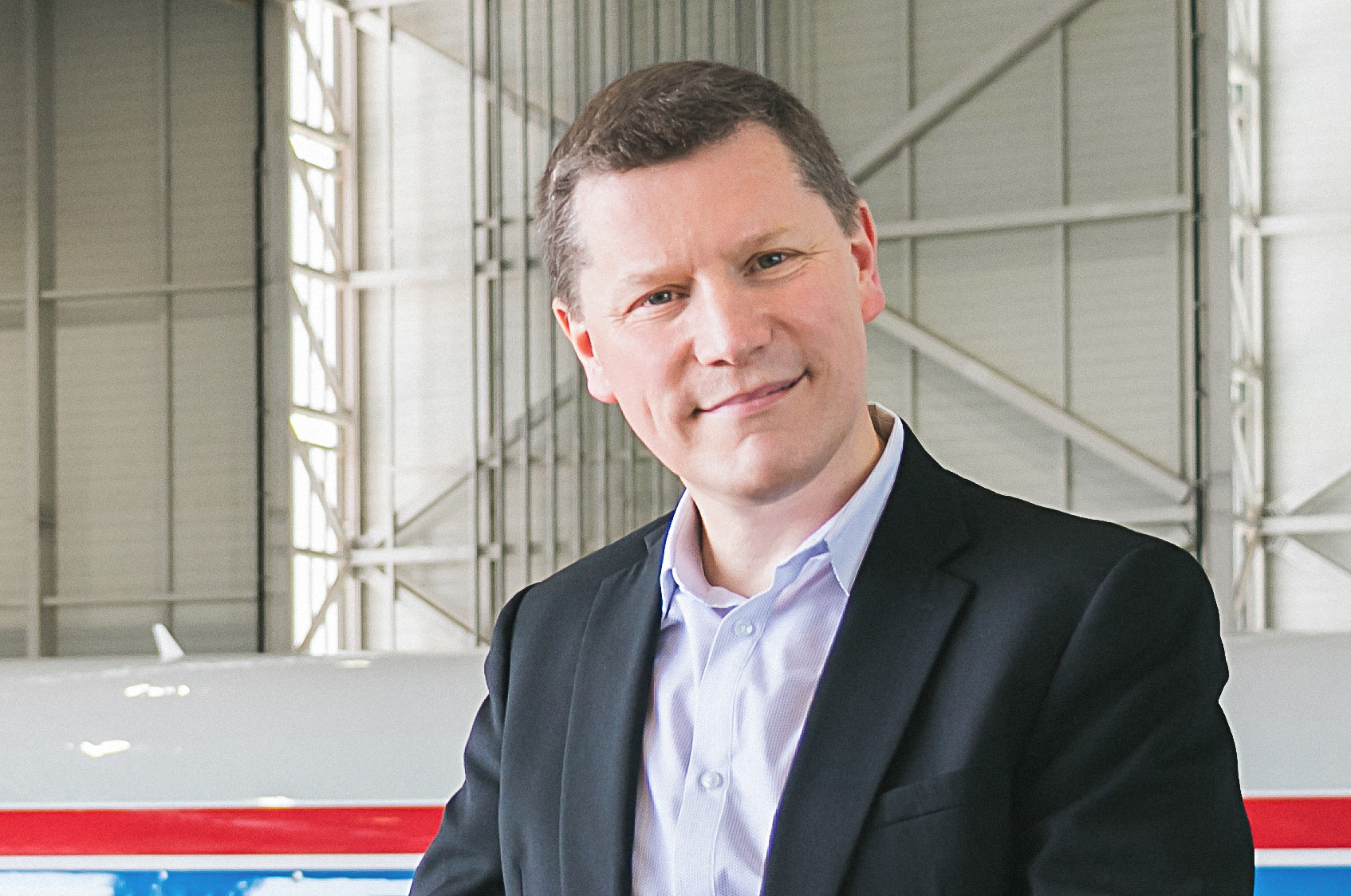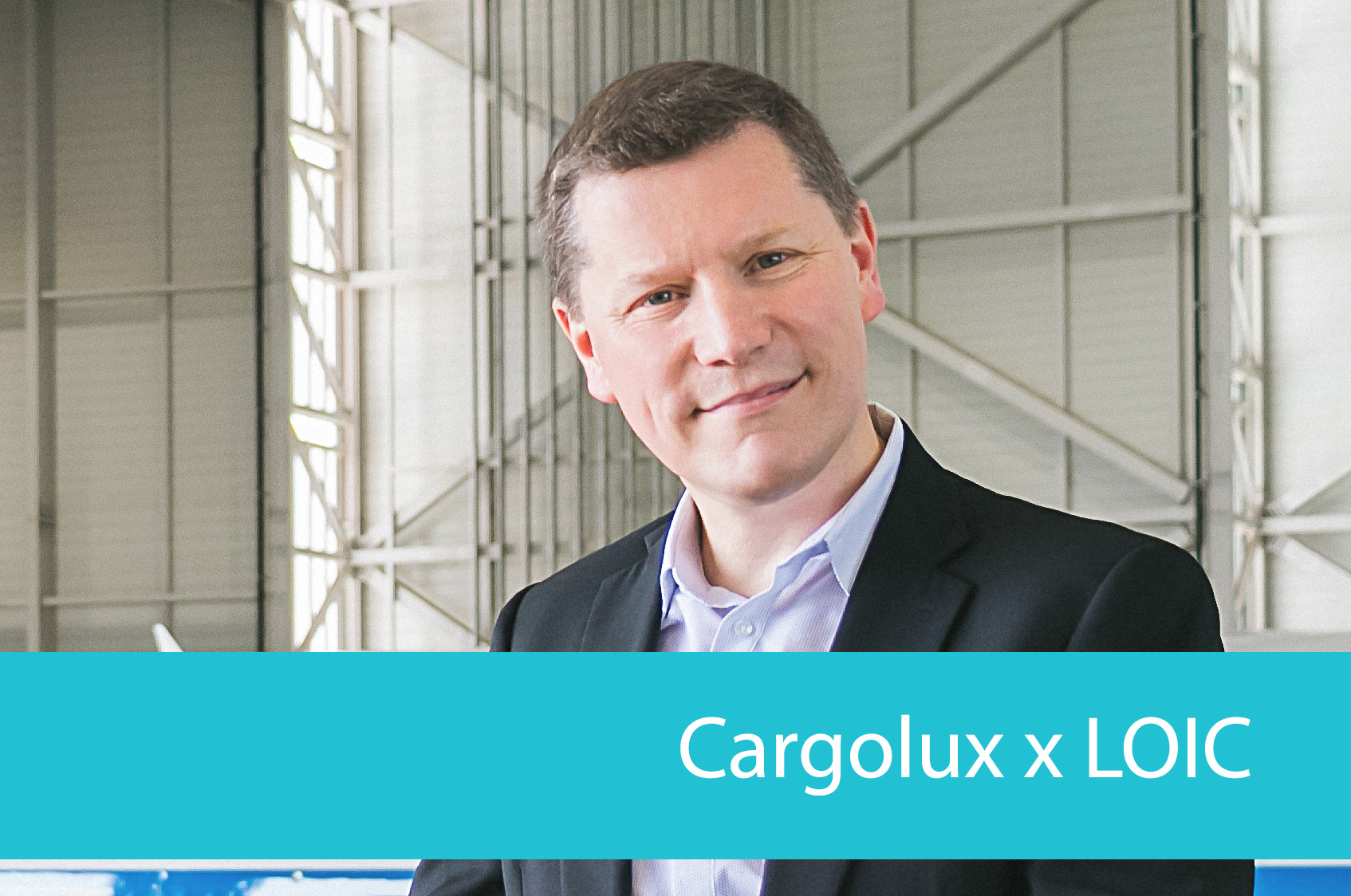What is Cargolux?
Cargolux carries boxes by air, from point A to point B... Behind that statement lies a complex operation, especially because we claim high flexibility in the way we service customers. Just our tagline: 'You Name It, We Fly It', says a lot. Cargolux demonstrates flexibility when it comes to catering for very specific and sometimes very demanding customer requirements or when it comes to opportunistically tapping into new market opportunities. If you wonder what are the exact items carried in these boxes, there is quite a wide variety of things. They can range from general cargo to outsized shipments, fancy sport cars, helicopters, flowers, perishable products or even animals like horses.

Who is Bruno Wozniak?
If I were a doctor, I would certainly be a general practitioner... I have respectable knowledge and experience on a broad range of things, but I can’t call myself an expert in any of these. I like to think I know more about technology than most of my fellow air cargo-co-workers, since my background is IT engineering. I also like to think I know more about logistics, air cargo and business than most of tech-staff, since getting an MBA after a 10-year experience probably helped a lot. That said, one of my key characteristic is my insatiable thirst for learning, a fair dose of curiosity and a genuine passion for novelty, especially in the field of technologies.
What is the importance of innovation at Cargolux?
It is important to the extent that the top executives of the company have decided to create a dedicated Innovation Office. This was a very recent move and we are a tiny team, but for in my point of view this sends out a clear signal, which will be followed by more. The competition in the air cargo industry is very tough, margins are far from lavish, so there is a demanding need to re-invent ourselves and remain sustainable. Moreover, the air cargo industry, unlike many others, has not yet been disrupted either from outside players either internally, which means that it’s not exactly at the leading edge when it comes to innovation. This is definitely a great opportunity!
In your perspective, what are the biggest challenges of traditional companies creating innovation in the digital age?
It is a tough call to make, especially for traditional companies, because radically changing things may incur high risks for the ‘bread and butter’ business and thus jeopardize the core of the business. Also regards to shareholders / customers as they are rather risk averse, especially the shareholders, they tend to put pressure not to change radically the way we do business, and this contribute in making innovation a bigger challenge. On the other hand, waiting too long to change can turn out to happen too late and prove to be lethal. Strong leadership is required to incorporate innovation and I am thankful that Cargolux understood this and took action upfront. The culture change is worth mentioning as it is a big challenge and touches upon: the human factor, digitalization pace, its exponential impact, its potential massive disruption power, etc. I am super fascinated by all these, but one must recognize that it can also trigger fear, vertigo, or paralysis...
What are you more excited about your new role at Cargolux?
Very simple: the feeling of a wide-open field of possibilities and the feeling that decisive impact can be achieved very rapidly. However, it is crucial to bear in mind the answer to the previous question (to avoid being overwhelmed by the enthusiasm) and accept that the journey towards a culture of innovation is not going to be a walk in the park, there will be challenges, there will be resistance.
What we witness is an increasing level of automation in manufacturing and warehousing leading towards on-demand logistics or even predictive logistics.
What are the main technological trends that will impact your industry?
It’s quite a hard exercise to make predictions, especially nowadays as new technologies and new business models pop up constantly. As we are just one link in the value chain, it’s crucial for us to understand what is going on downstream and upstream. What we witness is an increasing level of automation in manufacturing and warehousing leading towards on-demand logistics or even predictive logistics. Equally, with the increasing need for transparency, flexibility and adjustability, we may see the emergence of logistics marketplaces, some sort of digital brokerage platform to match optimally supply and demand.
Now, as your question encompassed the word technology, let's just look at a few:
- 3D printing: to what extent will it impact logistics? The one-million-dollar question... My bet is that it will end up into a hybrid model combining traditional logistics and 3D printing.
- Big Data will have a tremendous impact in terms of capacity optimization, customer experience, reduced risk and maybe new business models that we cannot imagine today.
- IoT is very relevant to logistics, possibly leading to a much more event-driven logistics.
- Blockchain can be applied to many use cases in logistics in which the stakeholders need for transparent, non-reputable records.
- Robotics is gaining a lot of traction, leading to massive gains of productivity and zero-defect.
- Self-driving vehicles, including airborne vehicles, are coming as well, even if there is still a very long way to go.
Can you share with us some of the initiatives that Cargolux is working on related to innovation?
We are at the very beginning of the journey and again it looks like the field of possibilities is limitless. But first, we need to build up credibility in the organization, so right now we focus mainly on creating the internal innovation network and on incremental innovations with very short delivery cycles. We want to act as ninjas (agile, adaptable, low ceremony) as opposed to the traditional organizations who act more like samurais (standard, predictable, high ceremony) to piggy back on Gartner's bimodal concept. To do that we are adopting the so-called low-code platforms, allowing us to deliver tangible results, MVPs to use the start-up jargon, in days rather than in months.
That said, in our short-term initiatives we manage to experiment with leading edge technologies, such as IoT and blockchain. We are currently planting the seeds for long-term initiatives, possibly with more disruption. We also start to engage with start-ups and with universities on some research projects. We are even contemplating the idea of a hackathon at Cargolux! I'm looking forward to the day it happens!

